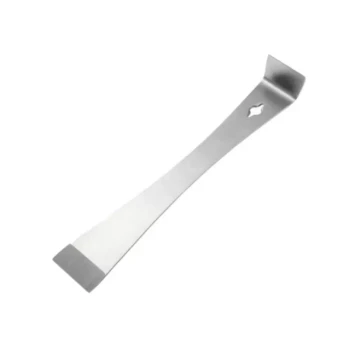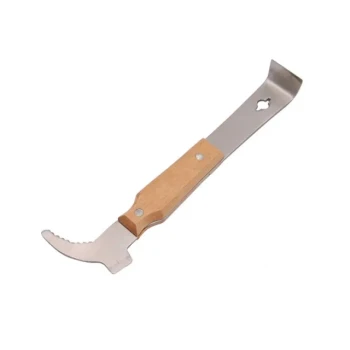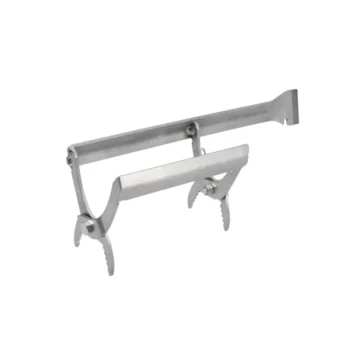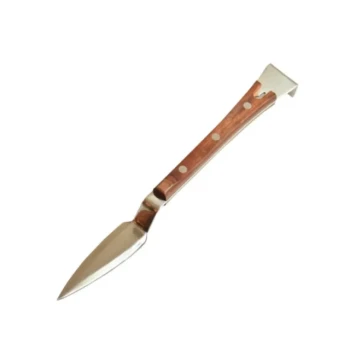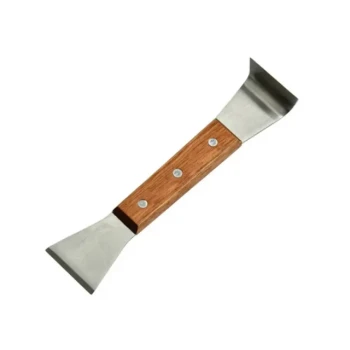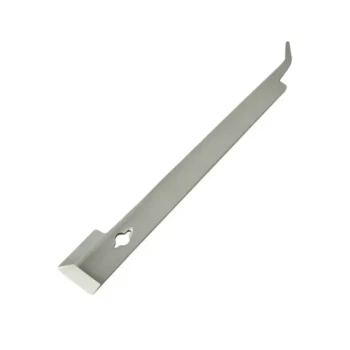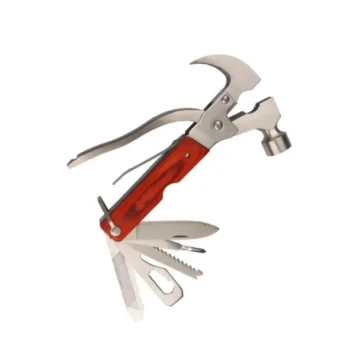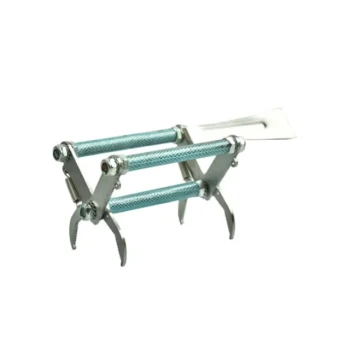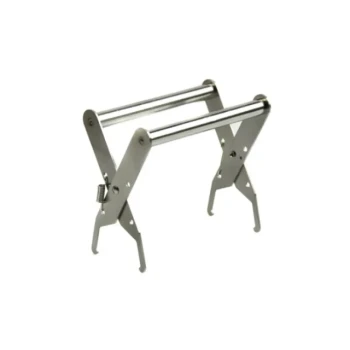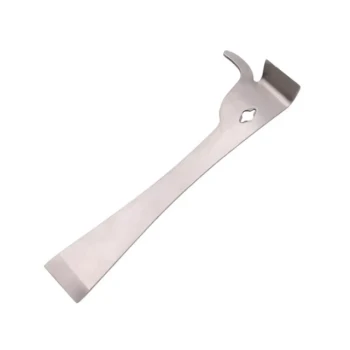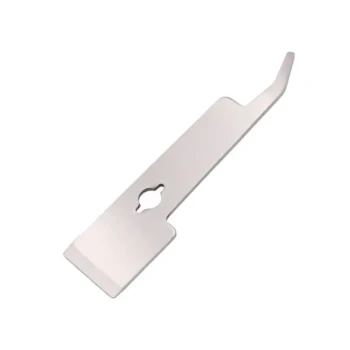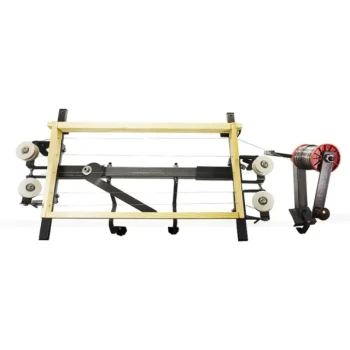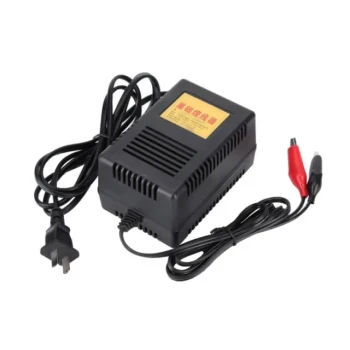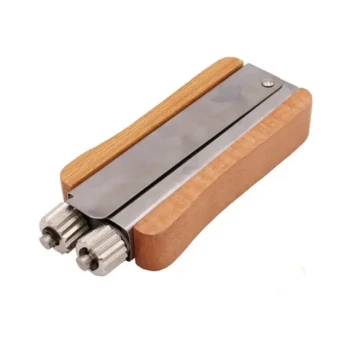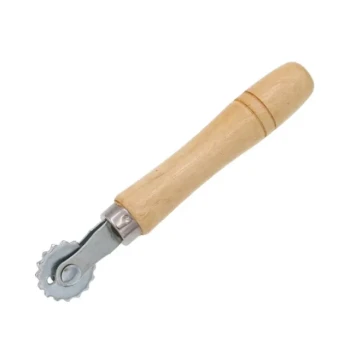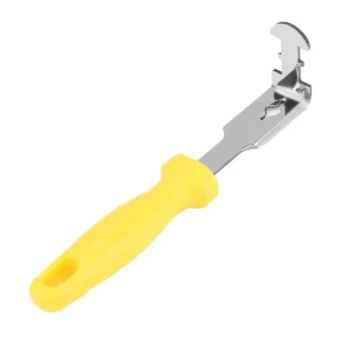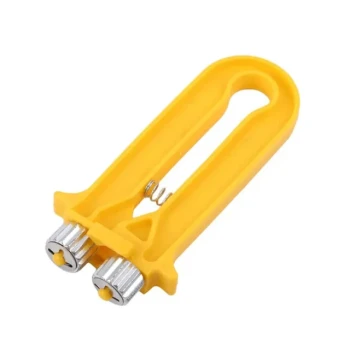At its core, a standard hive tool has two functional ends. One end is a flat, sharpened blade bent at an angle, designed for prying and scraping. The other end is a J-shaped hook, specifically crafted for lifting frames out of the hive body with precision and control. These two components work together to make it an indispensable multi-tool for any beekeeper.
A hive tool is not just a simple pry bar; it is the beekeeper's primary interface with the hive. Its design is a direct solution to the two main physical challenges of beekeeping: separating components sealed with strong bee glue (propolis) and manipulating frames without harming the colony.
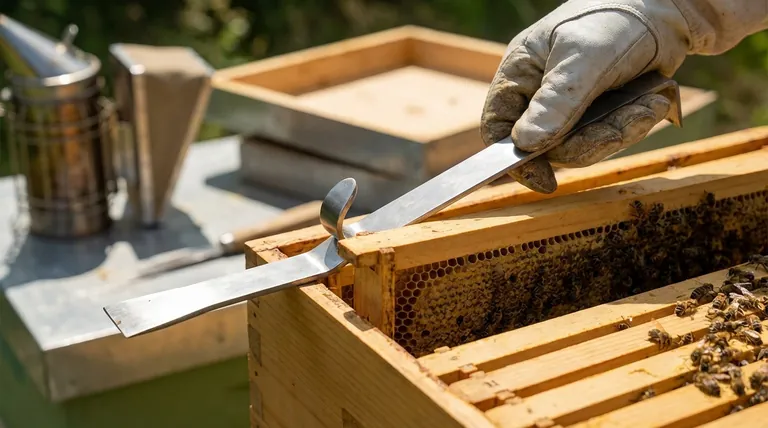
Deconstructing the Hive Tool's Anatomy
The genius of the hive tool lies in its simple, purpose-built design. Each part is engineered to solve a specific problem you will encounter during every hive inspection.
The Pry Bar End: The Workhorse
This part of the tool looks like a miniature, flattened crowbar. It typically features a wide, flat blade with a sharp, beveled edge that is bent at a slight angle.
Its primary purpose is to provide leverage. Bees use a substance called propolis to seal every crack and gap in their hive, effectively gluing the hive boxes (supers) and covers together. This end allows you to break that seal to open the hive. It also serves as a heavy-duty scraper for removing large amounts of unwanted wax or propolis.
The Hook End: The Precision Instrument
Often called a "J-Hook," this curved end is designed for more delicate work. The hook is shaped to fit perfectly under the "ear" of a hive frame's top bar.
This allows you to gently lift the first frame out of a tightly packed hive box. Attempting this with the pry bar end can be clumsy and risks crushing bees or damaging comb. The hook provides the precise control needed for this critical first step. It also doubles as a scraper for tight corners and hard-to-reach areas.
The Shaft: The Source of Power
The long, flat body connecting the two ends serves as the handle. Its length and rigidity are crucial for providing the leverage needed to separate heavy, propolis-sealed hive bodies. Its simple, robust construction means it can also be used for tapping things into place or scraping flat surfaces like the inner cover or bottom board.
Why One Simple Tool Is So Versatile
A hive tool replaces a toolbox full of other implements because its design is a direct response to the hive environment. Its versatility is not an accident; it's a result of decades of beekeeping experience.
Engineered for Propolis and Burr Comb
The entire tool is an answer to propolis and excess wax, known as burr comb. The sharp edges are for scraping these substances off equipment, while the angled pry bar is for breaking the powerful seals they create. Maintaining clean surfaces and proper "bee space" is essential for hive health and makes future inspections manageable.
A Critical Instrument for Hive Hygiene
Scraping away debris from the bottom board or removing unwanted comb is not just for tidiness. It's a key part of Integrated Pest Management (IPM). This cleaning action helps remove hiding places for pests like small hive beetles and allows you to inspect for signs of disease.
The Beekeeper's "Swiss Army Knife"
Beyond its core functions, a hive tool is used for countless other tasks in the apiary. It can be used to pull staples, clean out old foundation from frames, open feed cans, or even gently scrape a bee stinger from your skin without injecting more venom. Its robust, simple design makes it the go-to tool for nearly any physical task around the hives.
Understanding the Trade-offs: Tool Variations
While the J-Hook style is most common, it's important to recognize the primary alternative and its specific advantages.
The Standard "Crowbar" Tool
This classic design lacks a J-hook. Instead, it has two flat, pry-bar-style ends, often bent at different angles. This tool offers maximum prying force and is favored by some beekeepers who manage many hives or work in areas with very heavy propolis flow. However, it is less adept at gently lifting the first frame.
Multi-Function and Specialty Tools
Some manufacturers add extra features like serrated edges for cutting or a hammer-like flat spot for hitting nails. While potentially useful, these can add bulk and complexity. For the vast majority of beekeepers, a simple, high-quality standard or J-hook tool is superior.
Making the Right Choice for Your Apiary
Your choice of hive tool depends on your beekeeping style and priorities.
- If your primary focus is gentle handling and ease of use: Choose a J-Hook style tool. Its ability to lift the first frame without jarring the bees is invaluable, especially for new beekeepers.
- If your primary focus is maximum leverage for tough hives: A standard "crowbar" tool provides the most power for separating stubborn, propolis-sealed boxes.
- If your primary focus is longevity and biosecurity: Invest in a tool made from high-quality stainless steel. It will not rust and can be easily scraped clean and sterilized between hive inspections to prevent the spread of disease.
Ultimately, the hive tool is the single most important piece of equipment you will use, acting as a direct extension of your hands.
Summary Table:
| Part | Function | Key Feature |
|---|---|---|
| Pry Bar End | Breaking propolis seals, scraping wax | Angled, sharpened blade for maximum leverage |
| J-Hook End | Lifting frames, scraping corners | Curved design for precise, gentle control |
| Shaft | Providing leverage, handling tool | Long, flat, and rigid body |
Equip your apiary with professional-grade tools from HONESTBEE.
A reliable hive tool is the foundation of efficient and safe hive management. For commercial apiaries and equipment distributors, having durable, purpose-built tools is non-negotiable for protecting your investment and ensuring colony health.
HONESTBEE supplies high-quality beekeeping supplies and equipment through wholesale-focused operations. We provide the robust tools commercial beekeepers trust to handle heavy propolis seals and frequent inspections day in and day out.
Contact HONESTBEE today to discuss your wholesale needs and discover how our equipment can enhance your operational efficiency.
Visual Guide
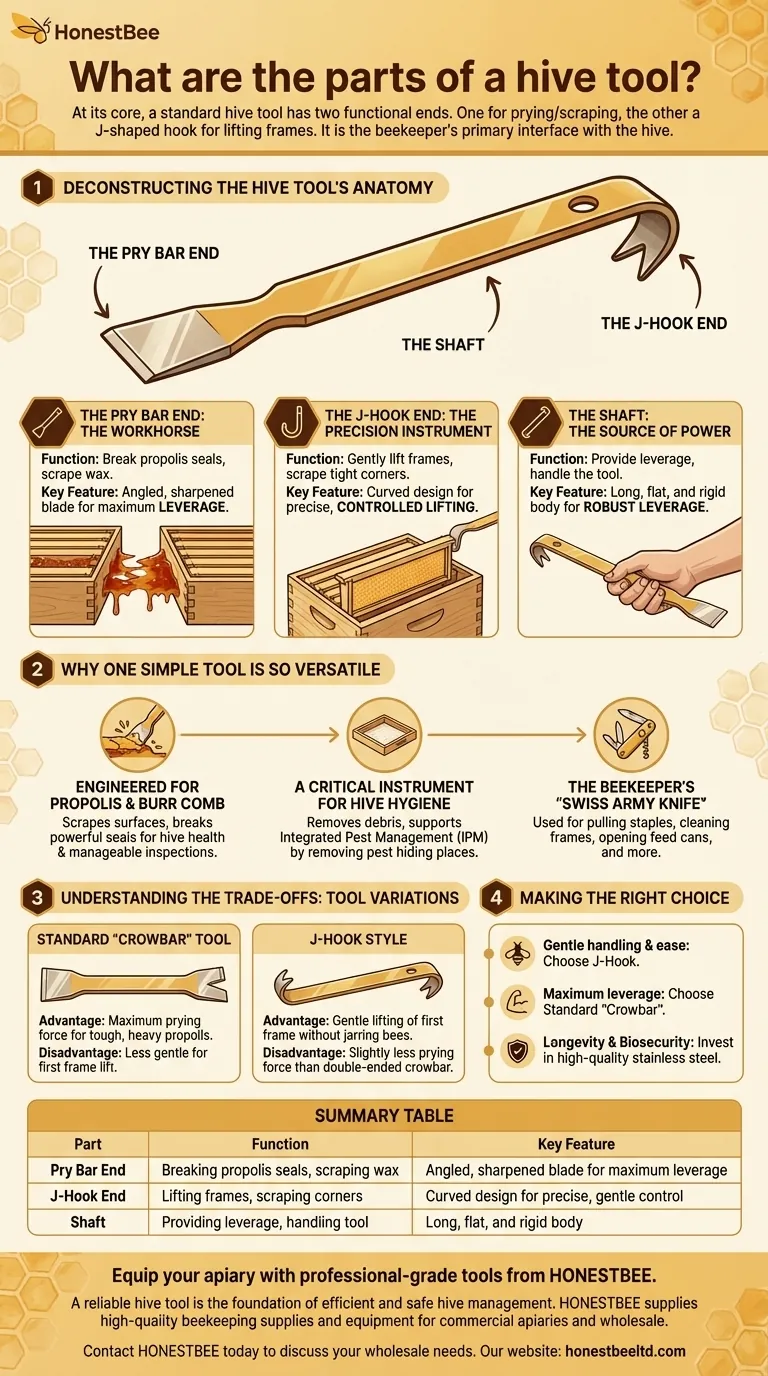
Related Products
- Professional Stainless Steel Pry-Bar Hive Tool
- HONESTBEE Advanced Ergonomic Stainless Steel Hive Tool for Beekeeping
- HONESTBEE Professional Multi-Functional Hive Tool with Ergonomic Wood Handle
- Multi-Function Plier-Style Frame Grip Hive Tool
- HONESTBEE Professional Long Handled Hive Tool with Precision Cutting Blade
People Also Ask
- What physical maintenance steps are required for the beehive prior to queen bee introduction? Boost Queen Acceptance
- What role do dedicated stingless beekeeping tools play? Enhance Yields and Protect Colony Integrity
- What is the role of physical buffer spaces and auxiliary beekeeping tools? Expert Exhibit Design Tips
- What is the purpose of the top cover in a beehive? Protect Your Hive from Weather and Pests
- What essential equipment and tools are required for beekeeping? Essential Gear for Beginner & Commercial Apiaries
- What is the function of using an empty beehive for bee collection? Ensure Accurate Forager Sampling for Pesticide Tests
- What structural maintenance should be performed on beehive components for winter? Secure Your Colony's Survival
- What are the essential hive components and tools? Build a Productive Commercial Colony with the Right Gear
